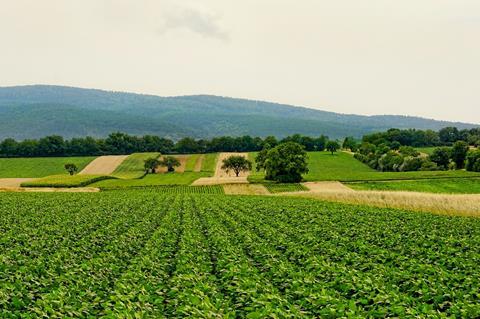The Microbial Agricultural Inoculants market is experiencing significant growth due to the increasing demand for sustainable farming practices. These inoculants contain beneficial microorganisms that improve soil health and enhance crop productivity. The use of fungicides and pesticides is decreasing as farmers turn to these natural solutions.
Increased yields
Proteins, crops, and fruits are all seeing increased yields with the implementation of microbial inoculants. Bioproducts and organic acids are key components in many inoculants, providing additional benefits such as disease resistance and nutrient availability. The trend towards organic and sustainable farming is driving the market forward, with companies focusing on innovation and research to meet the growing demand.
Market challenges
The global microbial agricultural inoculants market faces significant challenges, primarily due to farmers’ and stakeholders’ limited awareness of these products’ benefits. In many developing regions, farmers’ reliance on traditional practices hinders the adoption of microbial inoculants.
Additionally, registration difficulties for new products result in the availability of low-quality chemical fertilizers, discouraging innovation. Governments, private sectors, and research institutions must collaborate to increase awareness, invest in local research, and establish effective regulations to promote microbial agricultural inoculants. Farmers need to understand the benefits of these products for crop nutrition and productivity.
The Microbial Agricultural Inoculants market faces several challenges. The use of inoculants for improving crop productivity is essential, but the selection of appropriate strains and application methods can be complex. The cost of production and distribution, as well as the need for proper storage and handling, are significant challenges.
Additionally, the regulatory environment for the use of microbial inoculants varies from country to country, adding complexity to the market. Furthermore, the competition from synthetic fertilizers and pesticides can limit the growth of the market. Lastly, the need for continuous research and development to discover new strains and applications is crucial to stay competitive.
Segment Overview
- Type
- 1.1 Plant growth promoting micro-organisms
- 1.2 Biological pest control agents
- 1.3 Plant disease-resistance stimulants
- Application
- 2.1 Seed inoculation
- 2.2 Soil inoculation
- 2.3 Others
- Geography
- 3.1 North America
- 3.2 Europe
- 3.3 APAC
- 3.4 South America
- 3.5 Middle East and Africa
Plant growth promoting micro-organisms
The microbial agricultural inoculants market is driven by plant growth-promoting microorganisms. These microbes enhance plant health, boost nutrient uptake, and increase crop productivity. Nitrogen-fixing bacteria, like Rhizobium and Bradyrhizobium, form symbiotic relationships with leguminous plants, converting atmospheric nitrogen into a usable form.
Mycorrhizal fungi extend plant root systems and improve phosphorus absorption, enhancing plant resilience and soil health. Novozymes offers BioAg products containing these microbes, promoting sustainable nutrient uptake and crop productivity growth. The market’s expansion is fueled by the agricultural sector’s shift towards sustainable practices.
Research analysis
The Microbial Agricultural Inoculants Market encompasses the production and distribution of bacterial and fungal inoculants for use in Crop Nutrition and Crop Protection. These inoculants are utilized in various agricultural applications, including Seed Inoculation and Soil Inoculation. The market caters to a wide range of crops, such as Grains and Cereals, Pulses and Oilseeds, Commercial Crops, Fruits and Vegetables, and even Livestock feeds like Compound feed and Feed grains.
Crop preservation is another significant area where microbial-based products play a crucial role. Agriculturists employ these inoculants to enhance Agricultural Productivity by fostering a symbiotic relationship between beneficial microorganisms and crops. Microbial inoculants contribute to improved Crop Yields through seed coating and foliar application. Moreover, they are essential for Food Security by promoting organic farmland practices and reducing the reliance on Chemical Fertilizers.
Market research overview
The Microbial Agricultural Inoculants market refers to the industry that produces and supplies microorganisms for enhancing agricultural productivity. These inoculants are used to improve soil fertility, increase nutrient availability, and boost crop yields. The market encompasses various types of microbial strains, including bacteria and fungi, which are applied to crops through seeds, soil, or foliar applications.
The use of microbial inoculants is gaining popularity due to their eco-friendly nature, cost-effectiveness, and ability to promote sustainable agriculture. The market is driven by factors such as increasing demand for food production, growing awareness of organic farming practices, and government initiatives to promote the use of microbial inoculants. The market also faces challenges such as the need for proper storage and transportation of inoculants and the high competition from chemical fertilizers.
Technavio is a leading global technology research and advisory company. Their research and analysis focuses on emerging market trends and provides actionable insights to help businesses identify market opportunities and develop effective strategies to optimize their market positions.








No comments yet